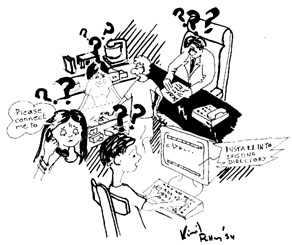|
Pattaya’s Persons of the Millennium!
Miss South Pattaya very “Bubbly” in victory!
Sri Lankan Food, Tea and Cultural Festival A Sri Lankan Food, Tea and Cultural festival will be held at the Landmark Hotel in Bangkok from 2nd-13th February. This a collaborative effort of the Embassy of Sri Lanka, Sri Lankan Airlines, Jetwing Group of Hotels in Colombo, the Landmark Hotel in Bangkok, the Ceylon Tourist Board and Dilmah Tea. Apart from the array of food prepared by expert Sri Lankan chefs of Jetwing Hotels Group, specially flown in by Sri Lankan Airlines, there will also be a tea promotion throughout the Festival where Dilmah tea will be served free. There will also be a display of Sri Lankan culture, handicrafts and the photographs of renowned Sri Lankan photographer Dominic Sansoni. As food and drink flow in abundance, guests will be serenaded by a group of Sri Lankan musicians playing Sri Lankan style calypso music - a legacy left by the Portuguese. So, if music be the food of love play on, and serenade also, the love of food.
by Melanie Kilmarx Submitted by Imtiaz Muqbil, Executive Editor, Travel Impact Newswire All-expenses-paid travel destination writers tell only half the truth. Read the remaining half, superbly penned by ‘real people’ such as this American kindergarten teacher living in North Thailand after a visit to Nepal and a Thai hilltribe village. We went to Nepal in October which was quite a trip and opened up a lot of stuff for me that I had been simmering. It was a dream of mine to see Nepal since reading the “Snow Leopard” in college. It was all I hoped in terms of beauty and spiritual richness. It was all I feared in terms of drastic change and degradation. The rapidity with which that country is banging up against commercialization, loss of traditional life, dealing with huge foreign dollars rolling in (and a few getting very rich while most come to see themselves “needy”), the onslaught of hungry tourists is staggering. In all, it was lovely. The trek we did out of Pokhara (three days up and down, and I do mean Up and Down the “hills” at the base of the enormous Annapurna group of mountains) was gorgeous. Peter’s parents and the boys went as well with porters to help carry the little ones. Most of the time I walked in solitude, following my breath (which often came in huge gulps so that part was easy!). The people in the villages lining the paths were open and warm. The country called me to honor the achingly beautiful world we live in. My God, it was breathtaking. I am grateful for the chance to have done it. What was hard to see and be with is what is happening by the frontal assault of commercialization. Everywhere people are surrendering their simpler ways to embrace the call of commercial products, the profusion of fleece jackets and energy bars, of throw-away plastic bottles and all the garbage strewn along the path pretty much from one end to the other, the kids seduced by begging, of the choking exhaust in Katmandu, a filthy place, of stores full of products coming from afar and ads blaring the need for everything you really often don’t need but come to think you do. People searching for “Western ways” (whatever that really means). It was so in-my-face there. As I read of the WTO upsets and the issues between the lines of popular press, usually unsaid, I come to have new perspective on “opening up countries to trade.” What does that really mean? Who benefits? Isn’t it large faceless businesses that only look to generate the most profit for the least cost that see the world as a huge consumer market place? 7-14 year olds as the target of advertising as, after all, they have all those consuming years ahead of them? What accountability do these corporations have? What accountability have we forced on them? Who is at choice? What if every price tag reflected the true cost of the product (how much water, gas, effluent in the environment, kids out of school to labor, etc, etc, etc, did it take to make that name-brand tennis shoe?). So many questions. As I sit here in my fleece, typing on my computer, completely present to abundance, I am conflicted of course. I do not, nor could I, begrudge any one sufficient warmth, adequate food and housing, education enough material support to truly allow the pursuit of other-than-survival. What I am so aware of, however, is that the mindless consumption of things because we have been told we need them will never bring happiness. The growing cadre of rich and spiritually empty millionaires tells the tale. The “thing” will never fill the space. I am convinced it is in this inner space that spirit, community, accountability and service to each other and ultimately awareness of inter-connectedness lives and thrives. We have been looking down the wrong hole for the cheese. What is strange is I never even questioned the pursuit of the “thing” that means “success” and having “made it” until I could see the process at work. How powerfully we are convinced we need that “skin lightening cream” (the amount of ads for this one thing alone is AMAZING and speaks volumes), that extra brightening soap (never mind that the bleach product ends up on the ground outside the house, gets into the garden, the plants are affected and we end up eating them), that a name brand label costing three-times-as-much will somehow make us happier, sexier, more appealing (no thought as to the kids assembling the stuff never making it to school because the pull of 75 cents a day’s labor is more than a family of seven can afford to give up). And on and on. I have no answers and am being thrown into a widening circle of questions. I feel overwhelmed at times by it all. It is more enormous than I can begin to perceive. I mean the end of it all is the desire by those-who-can’t-and-now-want-to to devour the same amount of resources that the “fully consuming” countries do. We would last about three months if “everyone did”. Used up. Finished. And would we be glad it ended that way? I doubt it. I can see going out with a bang but that seems a mindless kinda bang. Of course crisis will hit long before we ever get to that. We can still ignore it so it ain’t crisis yet. I do not doubt that it will be. I also am sure we will grow from the pain and somehow come to be the better for it. How’s that for intense optimism? And so for me, the great “doer” (have I ever learned a LOT from meditation and trying to stay in the state of “being-not-doing”, whew) how to proceed? I stave off guilt and begin the task of “sweeping in front of my own house”, of stretching myself to live a bit more in alignment with what feels the right path, of becoming more aware of the nagging doubts that let me know a certain decision isn’t the way to go, of trusting that if I look to myself and my immediate world to make a difference, somehow it affects us all. Somehow. Trust. An endless path. Whew, off I went. Thanks for staying with me. Helps a lot to even write it down. Last weekend, we went to a festival deep in the mountains of Chiang Mai at a Buddhist forest monastery. It honored the Karen hilltribe people, one group among many faced with the loss of their homelands and being expelled as the Thais want to start a national forest (or a dam of agricultural project, etc, etc) in the area that they have lived in for hundreds of years. Because they live lives apart from Thai society and always have, they are not even recognized as being citizens. A perfect example: the Akha hilltribe woman who lives with us, Me-Ah, just faced the bitter fact yesterday that all the thousands of Baht she has paid into the process of getting an identity card is probably for naught. She will have to begin the process again as she applied when she was 18 and now after two 1/2 years of paying out (her own corrupted village leader the main culprit) has to apply for the pink card of an “adult” and not the green card of a “minor”. She, her mom and dad, her grandparents and as far as anyone can remember were all born in the area she grew up in, high on a mountain. They migrated in centuries past from war in Tibet (or China). They are not considered legitimate. Sigh. The lifestyle of the Karen is under siege, a way of being that has thrived for centuries is in danger of being obliterated. So powerful to be part of these people dressed in brilliant traditional clothing, dancing by the evening fires and playing the bamboo flute, sharing about the environmental sense of rotational crop planting, each field reused only after seven years and, oddly, a main complaint of the forest service here (talk about lack of communication), speaking of their fears of being arrested for farming fields that their families have farmed for centuries as they have no “papers”, speaking of the pull for better health care and all the benefits of “western ways” while finding the path to retaining their traditional wisdom and passing it on to children that want only the life they see now on Thai soap operas. Many wish to revert to the past and obliterate the electricity that brought the TV in the first place but most see that is not the way either. How to proceed? Bearing witness. No answers, only questions and starting the process of finding the path. Very powerful for me. And so I look to the Christmas holiday with eyes that feel more open than ever. The bounty and often excess of food, the profusion of gifts under the tree, the “I-want” call of the season. How to manage in such a way that I come out feeling enriched? I have no answers. Lots of questions. Searching. And that is as it should be I think. I send love and peace. Thanks for being there. (Editor’s Note: Melanie Kilmarx runs a Montessori School in Chiang Mai, North Thailand.)
Bigotry? or negative effect cost-cutting? Education Minister Somsak Prissanananthakul was recently
quoted in the national newspapers as saying, “The country can’t be part
of the IT era if the population’s English skills are poor...” The
Minister is worried that the ever-increasing prevalence of English in the
new millennium will leave Thailand behind. To combat the situation, the
Education Ministry and the Office of the National Education Commission are
planning to create a corps of “model English teachers”. Well, we say
it’s about time. Way back in June 1994, Pattaya Mail ran the
following editorial: Thailand, in spite of a well educated populace, is falling behind its Asian counterparts in economic development. This is an unwelcome but undeniable fact. Singapore and Malaysia are streaking ahead in economic development - why? The autocratic style of government in Singapore is one reason and Singapore is a unique case, as a city-state with advanced economic systems and a strong market economy. But Malaysia governs largely as Thailand is trying to do - with an elected parliament. Both countries have an ethnic mix of people, as does Thailand. Where else do we look for the reason for their advance? The answer is: Common usage of the English language by the bulk of the population. Like it or not, English is the language of international commerce and technology. Thai students enter the race with a major handicap - poor understanding of English. Management in Thailand suffers from the same disability and cannot hope to keep up with international advances and world markets, working as they do only with translated copies of a small selection of published treatises and having to speak to their world counterparts through interpreters. Parents, ambitious for their children, recognising the need for a better standard of English if their children are to compete in the shrinking world, are forced to send their offspring to private schools as the state run schools do not offer English tuition to more than a very basic standard. Foreign schools, some excellent as are those in Pattaya, employing exclusively “native born English speakers” are generally beyond the pockets of all but a small percentage of the population. Some private Thai schools are affordable but, employing Thais to teach English, who have themselves started with the same disadvantage that faces newer generations, they are not often up to the task. This system serves only to widen the gap, already too wide, between rich and poor in Thailand. Children from farming and manual working families have little hope, however intelligent, of being able to compete in the job stakes - or even university entrance. Thus condemning that vast majority of Thais, in perpetuity, to manual labour and increasing poverty. The many advertisements in the English language national papers for “native born English speaking teachers” and similar number for hotel, tourist related and other industries stating “good knowledge of English essential”, is a measure of the need - if one was required. It is time the Ministry of Education recognised the fact that unless they improve the standard of English education in state run and supported schools Thailand will slip even further behind. The extra cost of employing foreign teachers will, in not too many years, be recovered from economic advances made by the Kingdom.
Copyright 1999 Pattaya Mail Publishing Co.Ltd. |
|



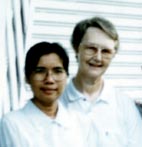
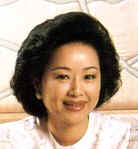



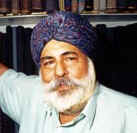



 Winners
of the 2nd Miss Pattayaland beauty contest: The lovely winner Miss
Supaporn from Bubbles (center), 2nd place Miss Napaporn from Passion A
Go-Go (right), and 3rd place Miss Weelailat from the Carousel Bar (left).
Winners
of the 2nd Miss Pattayaland beauty contest: The lovely winner Miss
Supaporn from Bubbles (center), 2nd place Miss Napaporn from Passion A
Go-Go (right), and 3rd place Miss Weelailat from the Carousel Bar (left).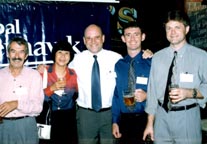 Peter
Cummins from Pattaya Mail, Suwanna Viroochan of the Travel Clinic, Graham
MacDonald Chairman BCCT Eastern Seaboard Committee, sponsors Paul Dobbs
and Randy Nelson GM of Global Silverhawk swap stories.
Peter
Cummins from Pattaya Mail, Suwanna Viroochan of the Travel Clinic, Graham
MacDonald Chairman BCCT Eastern Seaboard Committee, sponsors Paul Dobbs
and Randy Nelson GM of Global Silverhawk swap stories. Gordon
Sutcliffe of the Suttlett Group, Greg Watkins, Exec. Director of BCCT,
Jimmy Howard - EOC (Thailand) Ltd., and Graham MacDonald, Chairman BCCT
Eastern Seaboard Committee.
Gordon
Sutcliffe of the Suttlett Group, Greg Watkins, Exec. Director of BCCT,
Jimmy Howard - EOC (Thailand) Ltd., and Graham MacDonald, Chairman BCCT
Eastern Seaboard Committee. Terry,
Carol and Kaylin Waters from International School of the Eastern seaboard
(I.S.E.) with John Cuneen from Indoor Sport.
Terry,
Carol and Kaylin Waters from International School of the Eastern seaboard
(I.S.E.) with John Cuneen from Indoor Sport.